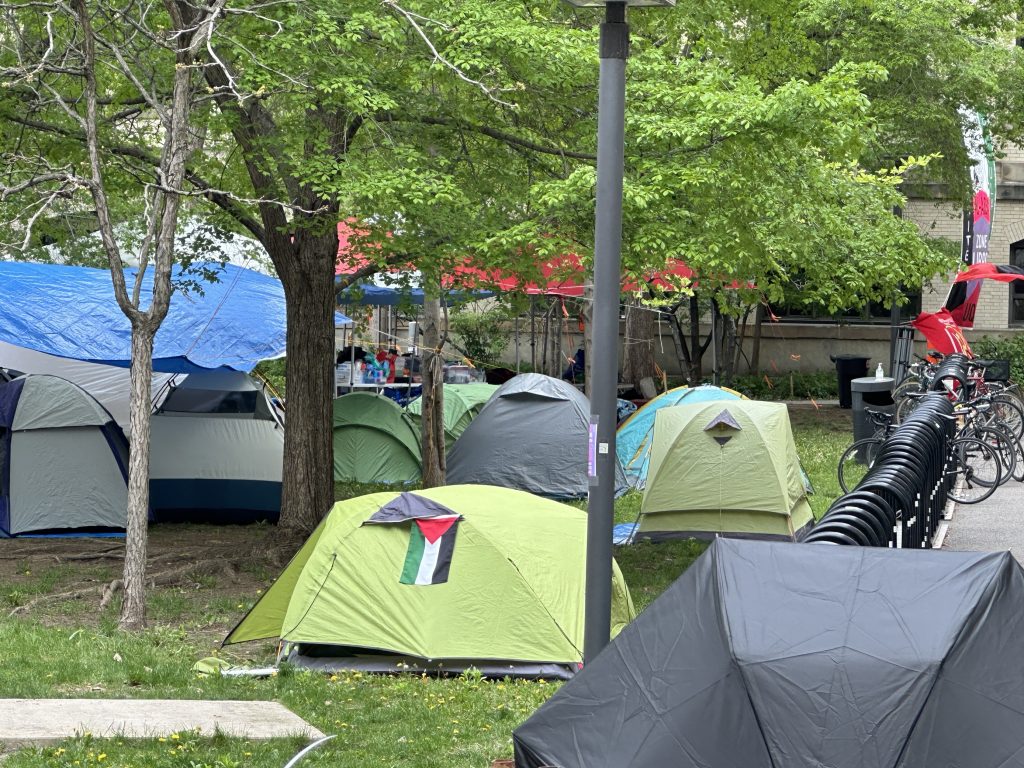New rent registry launched in Quebec
Posted May 11, 2023 11:58 am.
Last Updated May 11, 2023 6:59 pm.
A new Quebec-wide rent registry was launched Thursday by Vivre en Ville. The group hopes to better control rent increases in the current housing crisis – by offering more transparency.
The website allows anyone to register the price they currently pay for their rent and therefore allows the public to look up the rent of a specific unit. It discloses the address of the unit, the monthly rent and the unit’s features.
“The housing crisis affects everyone in Quebec. It is a complex and difficult issue to resolve. That’s why we believe that the Rent Registry can be a valuable tool for governments in their mission to protect tenants from abusive rent increases and curb real estate inflation. Such a registry would contribute to restoring the balance of power between the landlord and the tenant, in addition to providing a reliable, accurate and up-to-date picture of the rental market situation,” said Christian Savard, Executive Director of Vivre en Ville.
RELATED
Montreal launching new registry and certification for landlords
Plante accuses Quebec of ‘ignoring housing crisis’ in latest budget
To mark the launch, Léger Marketing conducted a survey about the rental market in Quebec. It revealed that in 2023, when tenants who responded to the survey moved, they saw their rent jump an average of 19 per cent.
Among those who responded to the survey, 32 per cent said they had no choice but to accept an abusive rent increase. Ten per cent of respondents also reported having lived in a situation of homelessness before. Consult the survey results here.
“We see that when tenants move, their rent increases on average by almost 20 per cent. This is an unsustainable rate, caused in part by the lack of information on previous rents,” added Adam Mongrain, Director of Habitation à Vivre en Ville.
Financial partners behind the new database include some municipalities, community groups, and the Canada Mortgage and Housing Corporation (CMHC).
“To address not only the effects, but also the causes of poverty and exclusion, we need to see more clearly. The lack of data on the housing situation in Greater Montreal limits the analysis and understanding of certain important issues, which are essential to identify sustainable solutions. This is why we believe it is important to fund the register, a promising tool for transparently documenting the evolution of rental costs. This data will allow us to better understand the specific issues affecting certain groups of citizens or different neighbourhoods,” says Claude Pinard, President and Executive Director of Centraide of Greater Montreal.

Claude Pinard, president and director general, Greater Montreal Centraide at a press conference May 11, 2023. (CREDIT: Gareth Madoc-Jones, CityNews Image)

Adam Mongrain, director of housing for Vivre en Ville, at a press conference May 11, 2023. (CREDIT: Gareth Madoc-Jones, CityNews Image)
“The lack of housing, the poor quality of many units available in the current housing market, and exorbitant prices have a considerable impact on the quality of life and overall health of Quebecers. This reality accentuates the social inequalities in health among the most vulnerable people, by reducing their available income for essential needs such as food, clothing and transportation, among others. Urgent action is needed to counter the perverse effects of poverty on our population. Every opportunity to act must be seized,” added Silvio Manfredi, Assistant to the Director, Promotion, Prevention and Community Development with the Laval Public Health Department.
A new Quebec-wide rent registry was launched Thursday by Vivre en Ville. The group hopes to better control rent increases in the current housing crisis – by offering more transparency.
READ: https://t.co/UdXlOGjajR pic.twitter.com/Sp1OwTmwHX
— CityNews Montreal (@CityNewsMTL) May 11, 2023



